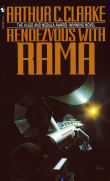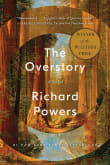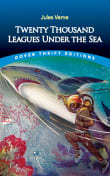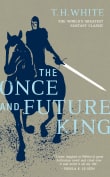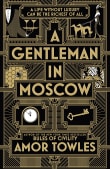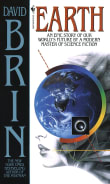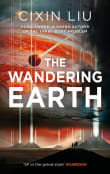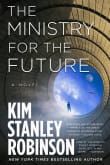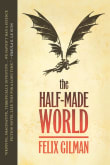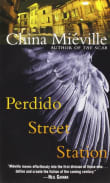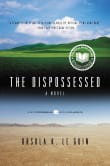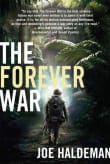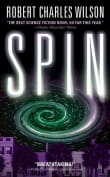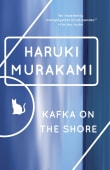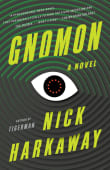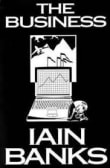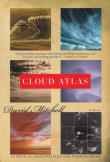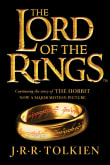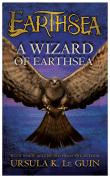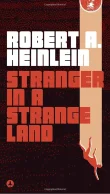Dune

Book description
Before The Matrix, before Star Wars, before Ender's Game and Neuromancer, there was Dune: winner of the prestigious Hugo and Nebula awards, and widely considered one of the greatest science fiction novels ever written.
Melange, or 'spice', is the most valuable - and rarest - element in the universe; a…
Why read it?
60 authors picked Dune as one of their favorite books. Why do they recommend it?

Like The Ballad of Songbirds and Snakes, Frank Herbert’s book tells the story of a man who could be the villain or the hero, depending on who you ask. I love watching how an intelligent yet malleable person can be swept up in feelings of duty, responsibility, and leadership only to make highly questionable decisions.
Paul Atreides’ moral ambiguity is undeniably engineered by the shifting and slimy political landscape of the Dune universe, driving home the idea in my mind that good worldbuilding can set the stage for truly complicated characters.
From J.B.'s list on moral grays in a technologically advanced future.

I sometimes encounter people who haven't read this book, and it’s always shocking to me. I think I had read it five times by age twenty. For me, although I do love the characters, it’s the story world that grips me and fuels my imagination.
For one, the scale is vast. Imagine what our future might look like ten thousand years after we’ve moved into the universe. There are so many fascinating and intricately imagined layers to the story world: how trade works when the Spacing Guild has a monopoly on interstellar travel, how politics in the far future could…
From Cody's list on thought-provoking sci-fi novels set in vivid worlds.

This has been one of my favorite books since I was a kid. I love it for two main reasons: The first is that I’m a fiend for exploring the real limits of ability (which the Bene Gesserit and Fremen do). The second is that as fantastical as the world is, it’s grounded in real science.
There are no giant sandworts on my own planet, but I completely believe why and how they’d exist on Arrakis. Herbert even includes an appendix to explain how it works, called “The Ecology of Dune.”
Fiction requires a leap of faith, but the real-science…
From Johnny's list on Sci-Fi real science that justifies unreal things.
If you love Dune...

This book is probably the best I have ever read. The way characters think and feel is expressed magnificently, and the subtle ‘awe’ moments drive the plot forward.
I have never felt more attached to characters and their magic. Paul’s journey is believable and incredibly crafted. World-building is effortless, and I was never bored at any point while listening to the book.
I fear reading more in the series because this book is so good. I don’t want anything to spoil its perfection.
From Liam's list on fantasy great world building relatable characters.

I was a young teenager the first time I read this book. At the time, I didn’t understand all that was going on, but I knew I liked the story and the world. But as an adult, all the underlying tensions and the deeper story touched something deep within me. I think it has to do with the struggle to survive and how to cope in a hostile environment–man and planet alike.
The idea that something so simple as a worm on a seemingly insignificant desert planet affected the whole universe fascinated me. If I had the power Paul Atreides…
From Jean's list on science fiction books that suck you into their world.

I can't have a sci-fi list without this book. Once more, I saw the movie first. I didn't find out it was a book until I was in high school. While I have not read it since, I do recall loving every minute of it. I never could tell if it was meant to be allegorical, given its religious implications, politics, and possibly a reference to both past and future generations.
This is one I may add to my list of summer reading. I want to see how it has evolved over time. This time, I'll read the books before…
From Aaron's list on sci-fi books with a good dose of science.
If you love Frank Herbert...

In this book, the lines between science and sorcery are indistinguishably and deliberately blurred, crafting a narrative that has evolved into a timeless masterpiece.
Set in a distant future, the universe is ruled over by feudalistic dukes and barons who wage interstellar wars for planets and resources. Here, psychoactive substances grant visions of the future, and colossal sandworms are revered as divine entities. But what truly captured my imagination was the portrayal of the technological as the magical. The Bene Gesserit, a secretive sisterhood often likened to witches, uses multigenerational genetic engineering to bring about prophesies and wield supernatural mind-controlling…
From Sam's list on novels that blend science fiction and fantasy.

What I loved most about this classic series is the detailed story world the author creates. When you read beyond the first book in the series, you start to get more and more of it — cultural, anthropological, geological, and more. It is a very cool and fully immersive world.
While the new movie series has captured the imagination of many and certainly has super cool production design elements, it does take some license with the story. Allow it to merely whet your appetite for the books. They're better.
From Arnie's list on sci-fi classics that offer insight into human nature.

I only recently read this book based on a friend’s recommendation (and because I wanted to read it before watching the movie). I was blown away by the depth and breadth of the world-building in Dune.
Though my general agreement with Herbert’s social philosophy might impact this pick, there’s no denying his prodigious world-building skills.
From Joseph's list on ferrying you to a fantastic world.
If you love Dune...

This book presents perhaps the most prescient and today-relevant sci-fi premise ever: how could technology evolve without thinking machines?
After reading this book, I finally understood that my thinking does not have to be constrained by the "scientific consensus" of the day. The book presents a future so radically different from what most futurists are envisioning that it not only freed my thinking about science and futurism...it freed my mind of all constraints.
Even further, it beckoned me to explore the limits of my own human potential.
From Mark's list on self-help books masquerading as sci-fi.
Want books like Dune?
Our community of 12,000+ authors has personally recommended 100 books like Dune.



